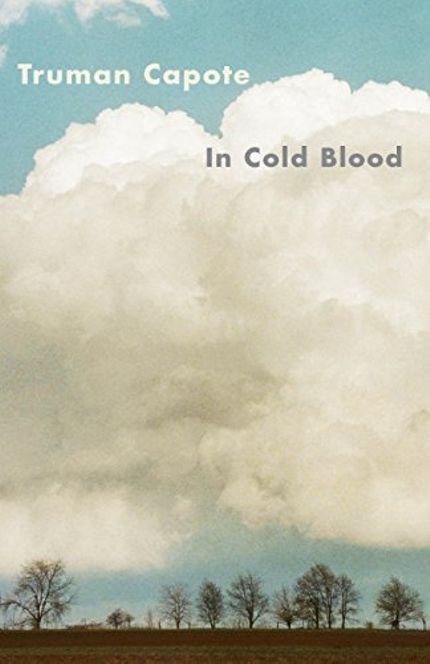Some true crime stories are so sensational that one can hardly believe they actually happened. We're all familiar with the stories of the world's most notorious killers—from the Zodiac Killer to Richard Ramirez—but there are plenty of other, perhaps lesser-known, crimes that are equally bizarre. Take, for example, the case of Lindy Chamberlain, who was accused of murdering her baby—but insisted an Australian dingo was the culprit. Other cases remain a mystery: Did the self-professed Boston Strangler give a false confession? These baffling crimes make for engrossing reads that, like the subjects they cover, tend to linger in the mind like a bad dream.
The following award-winning true crime books are a sample of the classics that have haunted readers for years. From the juggernaut of the genre, Truman Capote's In Cold Blood, to an exploration of the aforementioned Boston Strangler, these portraits of the most vile parts of humanity will shock you just as much as they shocked the critics.

The Devil in the White City
Edgar Award – Best Fact Crime – 2004
Quite possibly one of the most highly-decorated, award-winning books to be published in the 2000s, Erik Larson’s modern classic won an Edgar Award and International Horror Guild Award in 2003. Taking a note from Capote’s In Cold Blood, The Devil in the White City reads like a novel, but interweaves the very true stories of historical events and figures. In it, you'll find a fascinating dual profile of the architect and serial killer who changed America. The former was Daniel H. Burnham, who built the 1893 Chicago World's Fair. The latter was Dr. H.H. Holmes, a serial killer whose murder castle—a hotel located near Burnham's fairgrounds—was the site of 27 brutal murders. True crime fans are, of course, no stranger to Holmes' gory spree, but The Devil in the White City provides an original spin on the killer everyone thinks they know. Be on the lookout for a Martin Scorsese-Leonardo DiCaprio adaptation in the near future.

The CBS Murders
Edgar Award — Best Fact Crime — 1988
In 1982, accountant Margaret Barbera was headed to her car after a long day at work when she found the driver’s side door was jammed. Upon approaching the passenger side, she was fatally shot by a waiting assailant sitting in the car beside hers. It was the inciting event of a now-famous mass murder: Three other people, all employees of the nearby CBS television studios, were also killed after witnessing the crime. While this part of Manhattan rarely saw such violence, the circumstances surrounding the massacre were even more shocking. As it turned out, Barbera was the bloody collateral of a large-scale conspiracy, and the killer was a handyman-turned-hired assassin. Author Richard Hammer assembles all the pieces of the bloody puzzle in his award-winning true crime book, The CBS Murders, which Publishers Weekly hailed as "outstanding."
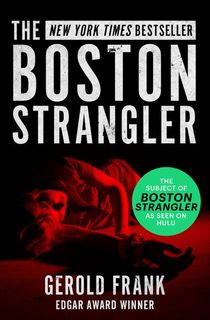
The Boston Strangler
Edgar Award – Best Fact Crime – 1967
Published in 1966, Gerold Frank’s The Boston Strangler is widely considered to be the definitive account of the case of its eponymous serial killer—a man who terrorized the greater Boston area between 1962 and 1964. Thirteen women were murdered—some stabbed, some sexually assaulted, and nearly all strangled with their own nylon stockings. While Albert DeSalvo confessed to the crimes in 1964, many people still doubted his guilt, convinced that the murders were the workings of more than one man. Frank interviewed hundreds of people to write this true crime classic and sorted through boxes of material to try and find answers to the oft-debated case. Though DNA evidence has since proven DeSalvo's culpability, this New York Times bestseller is a fascinating look at how an author can fill in the blanks that investigators leave behind. Frank's efforts won him the Edgar Award in 1967 for Best Fact Crime.
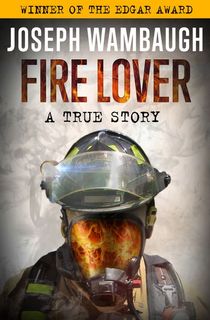
Fire Lover
Edgar Award – Best Fact Crime – 2003
The New York Times referred to the crimes of John Orr as "stranger than fiction," so it's no surprise that his story stands alongside the great classics of the true crime genre. Growing up, the Los Angeles native had always dreamed of becoming a police officer—but he was never quite up to scratch. As an alternative, he set his sights on the Glendale Fire Department, where he eventually secured a position and flourished as an arson investigator. But there was a reason Orr successfully busted the likes of SoCal's infamous "pillow pyro"—Orr himself had a taste for pyromania and had sent four innocents up in flames.
Before he became an award-winning true crime author, Joseph Wambaugh was an LAPD detective, and his expertise makes Fire Lover a must-read for anyone reading their way through the true crime annals. It even won him an the Edgar Award for Best Fact Crime in 2003 and became the leading account of America's most prolific arsonist.
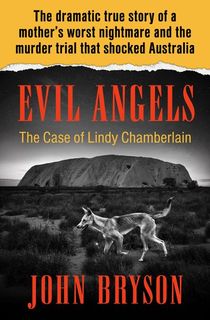
Evil Angels
Crime Writers’ Association – Gold, Non-Fiction – 1986
Meryl Streep's agonized cry of "The dingo took my baby!" may have brought Lindy Chamberlain's story to the American mainstream, but there's so much more to the story than A Cry in the Dark. When Chamberlain's daughter vanished during a family camping trip in the Australian outback, she attributed the disappearance to a rogue dingo. Sounds ridiculous, right? Such was the thinking of the jury who convicted Chamberlain of murder, though there was no evidence to discredit her claims or disprove her innocence. In Evil Angels, lawyer-turned-journalist John Bryson examines the trial, revealing it to be the most notorious wrongful conviction in Australian history. While Streep never took home an Academy Award for her role in the film adaptation, Bryson's book earned the the Crime Writers’ Association’s Gold Medal for Non-Fiction in 1986.
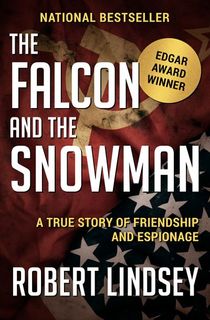
The Falcon and the Snowman
Edgar Award – Best Fact Crime – 1980
It always seems like the best spies are the most patriotic... until things go horribly wrong. This was the case for Christopher John Boyce, one of the CIA's most trusted contractors, who began selling classified documents to the KGB with the help of his friend Andrew Daulton Lee. Boyce was a known boozer and druggie, though he had a brilliant IQ. His drug-dealing pal, Lee, knew people with connections the Soviet embassy in Mexico. Together, they made a formidable, treasonous pair whose wheelings and dealings seem to come straight out of a John le Carré spy novel . Published in 1979, Robert Lindsey’s classic about the double-crossing duo won the Edgar Award for Best Fact Crime, and inspired the critically-acclaimed 1985 film of the same title, starring Sean Penn and Timothy Hutton.

In Cold Blood
Edgar Award – Best Fact Crime – 1966
Truman Capote’s bestselling book on the 1959 quadruple murder of the Clutter family in Holcomb, Kansas was an instant success when it was published in 1966. After reading about the murders in the New York Times, Capote traveled to Holcomb to write a piece on the town and the crime for the New Yorker magazine. But once he was there, he realized he had a huge story on his hands—one that would take him six years to write. At once a detailed reconstruction of the murders and subsequent investigation, it's also a profoundly empathetic account of violence in America that appeals to both fiction and nonfiction readers alike. In fact, the book even invented an entirely new genre—"the nonfiction novel"—and is arguably the most famous true crime work to date. Despite the astronomical success of In Cold Blood and the popular movie adaptation in 1967, Capote never wrote another full-length book again.

Columbine
Edgar Award – Best Fact Crime – 2010
Journalist Dave Cullen spent 10 years writing his true crime account on the Columbine massacre, which received high praise from Time magazine, The New York Times, Newsweek, and more. The book chronicles the chain of events leading up to that fateful date in April, 1999, and how the aftermath changed the lives of the crime's survivors. But what makes Columbine such a genre mainstay is how it debunks the pervading misconceptions of the shooting—something that stirred quite a bit of controversy upon the book's 2009 publication. Cullen rejected the common assumptions made about the killers, Dylan Klebold and Eric Harris, who were said to be outcasts with a grudge against jocks and popular classmates. Columbine spent eight weeks on the New York Times Bestseller list, and won several awards, including the Edgar Award for Best Fact Crime. It's been nearly a decade since the book hit store shelves, but given the recent shootings in Las Vegas and Sutherland Springs, Texas (and so many others), the story of Columbine is unfortunately more relevant than ever.


